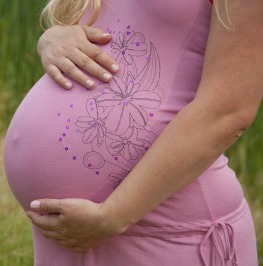What are the Signs and Symptoms of Anemia?
Some women don’t show any signs or symptoms that they are anemic while others do. Watch for these signs and symptoms:
- feeling more tired than usual
- feeling weak
- feel dizzy
- look paler on your fingernails, on the underside of your eyelids, and lips
- rapid heartbeat
- heart palpitations
- shortness of breath
- headache
- irritability
- difficulty concentrating
- begin craving ice or non-food substances
Make sure that if you have any of the signs or symptoms listed above that you mention them to your health care provider immediately. Generally when someone has severe anemia they will begin to crave weird things such as ice, dirt, clay, paper, paint, starch, animal feces, glass, and any other weird items. Don’t give in to these cravings, these cravings can harm you and your baby.
Treating Iron-Deficiency Anemia Should Be Taken Seriously
It is important that you take any iron supplements or other treatments that your doctor or health care provider prescribes you to treat anemia. Also, increase the amount of iron rich foods in your diet. These foods include: red meat, poultry, shellfish, beans, lentils, tofu, raisins, dates, prunes, potatoes (you have to leave the skin on them), leafy green vegetables, and many other choices . Your baby iron needs will be taken from any amount of iron that your are getting through your diet, but it leaves you vulnerable to anemia related complications during delivery. However, anemia that is left untreated will increase your baby’s chances of anemia during their first year. Mother’s who have anemia are also at risk for having preterm labor, low birth weight, increase risk for being still born or infant death, lowers your immune system leaving your vulnerable for infections, increase blood loss during birth, and possibly linked to postpartum depression.
Did you experience anemia during your pregnancy?
